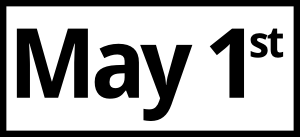"FRAND" is a FRAUD
One option under consideration is to demand the patent holder give everyone a royalty-free patent license for implementing the standard. That at least permits free software to support the standard.

You have until May 1st to take action
The other option is a criterion called "FRAND", which claims to mean "Fair, Reasonable And Non-Discriminatory". What it really means is that the patent holder must publish terms and allow anyone to buy a license on those terms. The terms are often such as to exclude free software entirely from implementing the standard.
For instance, these terms can (and in many cases do) require anyone distributing the software to pay a license fee per copy of the program distributed. If you receive a program with a requirement to pay someone if you redistribute it, you do not have freedom #2 [Link to http://www.gnu.org/philosophy/free-sw.html], so the program is not free software. In effect, these terms discriminate against free software, which is neither fair nor reasonable.
The term "FRAND" is a FRAUD.
The existence of a software patent on a certain idea is not an automatic sentence of exclusion for free software. A few patent holders have granted liberal patent licenses for all use of a certain program, sometimes even covering all free programs distributed under the GNU General Public License (GNU GPL). Rather more have given royalty-free licenses to implement specific standards, because that was part of the requirement for approval of the standard. But these are a rare exception, and the difference between them and typical "FRAND" licenses demonstrates how far the latter are from allowing free software.
Please answer the consultation to support the requirement for royalty-free licenses for "open standards". The closing date is May 1st.
For information on the consultation, see:
- http://consultation.cabinetoffice.gov.uk/openstandards/
- http://consultation.cabinetoffice.gov.uk/openstandards/how-to-respond/
Additionally, Free Software Foundation Europe has prepared recommended answers to some of the questions in the consultation.
Postscripts:
This need for this consultation arises from a harmful policy decision: allowing patents to restrict the development, distribution and use of software. A correct decision on the question at hand will partly reduce the damage that software patents do, but they will still do damage. Software patents put software developers, distributors and sometimes even users in danger. The UK ought to reconsider allowing them at all.
The reason that the deceptive idea of "FRAND" is considered as an option is that the question is formulated in terms of "open" standards, rather than "free" or "libre" standards. If the UK government posed the question in terms of standards that respect freedom, the answer would be obvious: everyone must be free to implement the standard.

